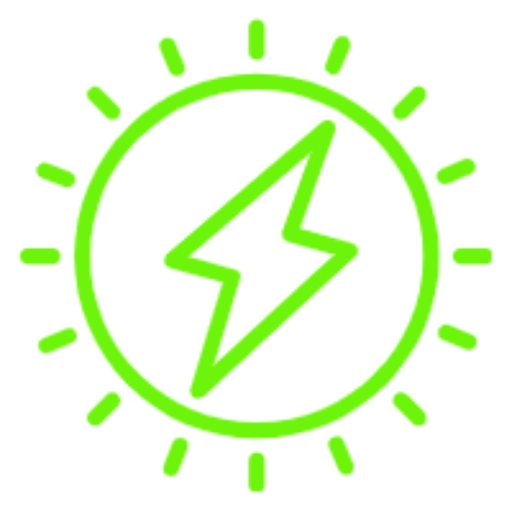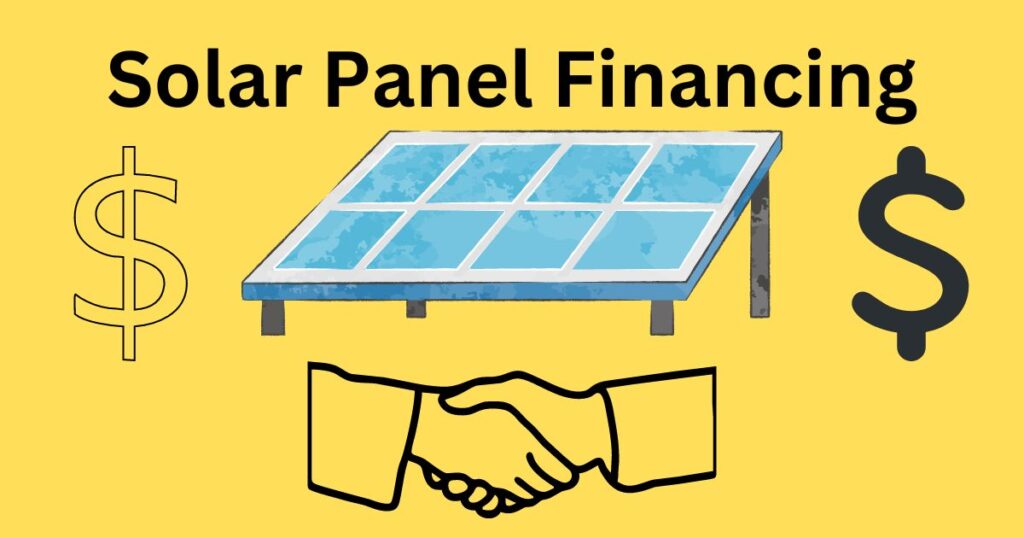Last updated on June 29th, 2024 at 12:12 am
When considering solar panel financing options, homeowners and businesses are presented with a spectrum of choices tailored to suit their financial needs and objectives.
From cash purchases providing immediate ownership and long-term savings to loans offering access to financing with tax incentives, the array of possibilities caters to a diverse range of preferences.
This comprehensive overview equips readers with the knowledge and insights necessary to choose the most suitable solar panel financing avenue, ensuring a smooth transition towards harnessing the benefits of solar energy while maximizing long-term savings and environmental impact.
2. Consider the upfront costs, long-term savings potential, and ownership benefits associated with each financing option.
3. Explore available tax incentives, such as the Federal Investment Tax Credit (ITC), to maximize financial benefits.
4. Review the terms, interest rates, and eligibility criteria of loans carefully to choose the most favorable option.
5.Consult with solar energy providers and financial advisors to make an informed decision tailored to your specific circumstances and objectives.
Importance of understanding financing options for solar panel installation
Understanding financing options for solar panel installation is crucial for several reasons:
Affordability
Solar panel systems can represent a significant upfront investment. By exploring financing options, homeowners can make solar energy more affordable by spreading out the cost over time, reducing the financial barrier to entry.
Access to Solar Energy
Financing options make solar energy accessible to a broader range of homeowners who may not have the capital to purchase a system outright. This inclusivity promotes the adoption of renewable energy and contributes to reducing reliance on fossil fuels.
Flexibility
Financing options provide flexibility in how homeowners choose to pay for their solar panel systems. Whether through cash purchases, loans, leases, or power purchase agreements (PPAs), homeowners can select the option that best suits their financial situation and preferences.
Return on Investment (ROI)
Solar panel systems are an investment that can yield significant returns over time through energy savings and potential incentives. By understanding financing options, homeowners can evaluate the ROI of solar energy and make informed decisions about their investments.

Different types of solar panel financing options
Here are some commonly used solar panel financing options:
Cash purchase
A cash purchase of solar panels offers the advantages of immediate ownership and maximized savings but requires careful consideration of the high upfront cost and its implications for financial stability and flexibility.
Homeowners with available funds should assess their financial situation and long-term goals to determine if a cash purchase is the right financing option for them. Here are some advantages and disadvantages of cash purchase:
Pros:
- Immediate Ownership: With a cash purchase, homeowners outright own the solar panel system from the beginning. There are no monthly payments or interest charges, providing a sense of ownership and control over the system.
- Maximized Savings: By paying upfront in cash, homeowners can avoid interest charges associated with loans or financing options. This can result in maximizing long-term savings on electricity bills since there are no additional costs beyond the initial investment.
- Simplified Process: Cash purchases typically involve a straightforward transaction process without the need for credit checks or approval from financing institutions. This simplifies the purchasing process and allows homeowners to proceed with installation quickly.
Cons:
- High Upfront Cost: The most significant drawback of a cash purchase is the high upfront cost of the solar panel system. Not all homeowners may have the financial resources available to make such a substantial investment upfront, which can limit accessibility to solar energy.
- Opportunity Cost: Investing a large sum of money in a solar panel system may mean sacrificing potential investment opportunities elsewhere. Homeowners must consider the opportunity cost of tying up funds in a solar panel system versus other investment options.
- Limited Cash Flow Flexibility: A cash purchase can deplete a significant portion of a homeowner’s cash reserves, leaving them with limited flexibility for other expenses or emergencies. This lack of liquidity may pose a challenge for homeowners who prefer to maintain cash flow flexibility.
Solar loans
Solar loans are a popular financing option for homeowners looking to install solar panel systems without paying the full upfront cost. The percentage of interest for solar loans can vary depending on several factors, including the lender, loan term, borrower’s creditworthiness, and prevailing market conditions.
Generally, interest rates for solar loans range from around 3% to 36% APR (Annual Percentage Rate). There are several types of solar loans available, each with its own characteristics:
-
Secured vs. Unsecured Loans: Secured solar loans require collateral, such as the solar panel system itself or other assets, to secure the loan. These loans typically offer lower interest rates and longer repayment terms due to the reduced risk for lenders. Unsecured solar loans, on the other hand, do not require collateral but may have higher interest rates and shorter repayment terms to compensate for the increased risk to lenders.
-
Traditional vs. Solar-Specific Loans: Traditional solar loans are offered by banks, credit unions, and financial institutions and can be used for various purposes, including solar panel installation. Solar-specific loans, also known as green energy loans, are specifically designed for financing renewable energy projects such as solar panel systems. These loans may offer more favorable terms and incentives tailored to solar energy projects.
Pros:
- Access to Financing: Solar loans provide homeowners with access to the funds needed to install solar panel systems without paying the full upfront cost.
- Flexible Repayment Options: Solar loans offer flexible repayment terms, allowing homeowners to choose repayment periods that suit their budget and financial goals.
- Ownership of Solar Panels: Unlike solar leases or power purchase agreements (PPAs), solar loans enable homeowners to own the solar panel system outright, providing long-term financial benefits and increased home value.
- Potential Tax Benefits: Homeowners may be eligible for tax benefits, such as federal tax credits or deductions, when financing solar panel installation through a loan.
Cons:
- Interest Costs: Like any loan, solar loans incur interest costs over the repayment period, which can add to the total cost of the solar panel system.
- Credit Requirements: Qualifying for a solar loan may require a certain credit score and financial history, making it inaccessible to some homeowners with poor credit or limited income.
- Risk of Default: Failure to repay a solar loan can result in consequences such as damage to credit score, potential repossession of collateral for secured loans, and legal action by lenders.
Tips for Finding the Best Solar Loan Option
- Research Lenders: Start by researching lenders that offer solar loans and compare their terms, interest rates, fees, and eligibility requirements.
- Consider Loan Terms: Evaluate the repayment terms offered by different lenders, including interest rates, loan durations, and monthly payments, to find a loan that fits your budget and financial goals.
- Check for Incentives: Look for lenders that offer incentives such as special financing programs, discounts, or rebates for solar panel installation.
- Review Customer Reviews: Read reviews and testimonials from other homeowners who have used solar loans from various lenders to gauge customer satisfaction and experiences.
Power Purchase Agreement (PPA)
A Power Purchase Agreement (PPA) is a contractual agreement between a homeowner or business owner and a solar energy provider or developer. Under a PPA, the homeowner agrees to purchase the electricity generated by a solar panel system installed on their property at a predetermined rate per kilowatt-hour (kWh). The solar energy provider, also known as the PPA provider, owns, operates, and maintains the solar panel system.
Pros:
-
-
No Upfront Cost: One of the most significant advantages of a PPA is that it typically requires no upfront cost for the installation of the solar panel system. The seller or developer covers the upfront costs of equipment, installation, and maintenance, making solar energy accessible to off-takers who may not have the financial resources to purchase a system outright.
-
-
-
Predictable Electricity Costs: By entering into a PPA, off-takers can lock in a fixed or escalating rate for electricity generated by the solar panel system. This provides predictability and stability in energy costs over the term of the agreement, protecting off-takers from fluctuations in utility rates.
-
-
-
Maintenance and Monitoring: The seller or developer is responsible for maintaining and monitoring the solar panel system throughout the duration of the agreement. This includes regular maintenance, repairs, and any necessary upgrades to ensure optimal performance and efficiency of the system.
-
Cons :
- Long-Term Commitment: PPAs typically involve long-term contracts, requiring off-takers to commit to purchasing electricity from the seller for an extended period. While this provides stability in energy costs, it also limits off-takers’ flexibility to switch providers or adjust their energy consumption patterns.
- Limited Ownership Benefits: Since the solar panel system is owned by the seller or developer, off-takers do not benefit from ownership incentives such as tax credits or rebates associated with purchasing a solar panel system outright. Additionally, off-takers do not accrue any equity in the system over time.
-
Potential Rate Increases: While PPAs offer predictability in electricity costs, the PPA rate may escalate over time, leading to higher energy expenses for off-takers in the future. Off-takers should carefully review the terms of the agreement to understand how the PPA rate may change over the duration of the contract.
Solar lease
A solar lease operates similarly to a PPA, with the homeowner entering into a contract with a solar energy company to lease the solar panel system. However, instead of paying for the electricity generated by the system, the homeowner pays a fixed monthly lease payment for the use of the solar panels.
Pros :
- No Upfront Cost: Similar to a PPA, solar leases often require no upfront cost for the installation of the solar panel system, making solar energy accessible to a broader range of homeowners.
- Fixed Monthly Payments: With a solar lease, homeowners pay a fixed monthly lease payment for the use of the solar panels, providing predictability in energy costs over the term of the lease.
- Maintenance and Monitoring: As with a PPA, the solar lease provider is responsible for maintaining and monitoring the solar panel system, relieving homeowners of the burden of maintenance and repairs.
Cons:
- Long-Term Commitment: Solar leases typically involve long-term contracts, similar to PPAs, requiring homeowners to commit to leasing the solar panel system for an extended period.
- Limited Ownership Benefits: Since the solar panel system is owned by the leasing company, homeowners do not benefit from ownership incentives such as tax credits or rebates, and they do not accrue any equity in the system over time.
- Lease Payments: While lease payments may be fixed, they do not provide homeowners with the opportunity to benefit from potential savings on electricity costs, as they would with a PPA.
Solar panel tax benefits
Solar panel installations offer several tax benefits at both the federal and state levels, encouraging homeowners and businesses to invest in renewable energy. One of the most significant federal tax incentives for solar panel installations is the Solar Investment Tax Credit (ITC). The ITC allows homeowners and businesses to claim a percentage of the cost of their solar panel system as a tax credit on their federal income taxes.
As of the most recent information available, the federal solar Investment Tax Credit (ITC) offers a tax credit of 26% of the total cost of a solar panel system installed in 2021 and 2022. This means that homeowners and businesses can deduct 26% of the cost of their solar panel system from their federal income taxes. In August 2022, Congress extended the ITC, increasing it to 30% for installations between 2022 and 2032.
In addition to the federal ITC, some states offer their own tax incentives for solar panel installations. These incentives may include state tax credits, rebates, grants, or property tax exemptions for solar energy systems. The availability and extent of state-level incentives vary depending on the state’s policies and regulations.
The federal ITC and state-level tax incentives can significantly reduce the upfront cost of installing a solar panel system, making solar energy more affordable for homeowners and businesses. These tax benefits help offset the initial investment in solar energy and provide long-term financial savings through reduced energy costs.
Cash vs. Loan vs. Lease comparison
| Aspect | Cash | Loan | Lease |
| Upfront Cost | High | Moderate to High | Low (typically none) |
| Ownership | Immediate | Upon Loan Repayment | Leased |
| Financial Benefits | Maximized Savings, No Interest | Access to Financing, Tax Incentives | Predictable Payments, No Interest |
| Maintenance Responsibility | Homeowner | Homeowner | Provider |
| Tax Benefits | Yes (Ownership Incentives) | Yes (Federal ITC, etc.) | Limited (No Ownership) |
Final words!
Solar panel financing offers a range of options for homeowners and businesses. Cash purchases provide immediate ownership and savings but require a high upfront investment.
Loans offer access to financing with tax incentives but entail interest charges and credit requirements. Solar leases require no upfront cost, predictable payments, and maintenance services but lack ownership benefits and involve long-term commitments.
Ultimately, the choice depends on factors like budget, financial goals, and preferences for ownership. Regardless of the method chosen, solar energy investment promises financial savings and environmental benefits in the long run.
Frequently Asked Questions (FAQs)

